Recently, many scholars came together at Schwarzman College to share their insights on political, economic issues and international relations within a globalized context. Among them were: Niall Ferguson (Outstanding Visiting Professor of Schwarzman College, Tsinghua University and renowned historian), Zhu Min (former Vice President of International Monetary Fund (IMF) and Deputy Governor of People’s Bank of China (PBOC)), and Qin Yaqing (President of China Foreign Affairs University (CFAU) and Executive Vice-president of China National Association for International Studies.)
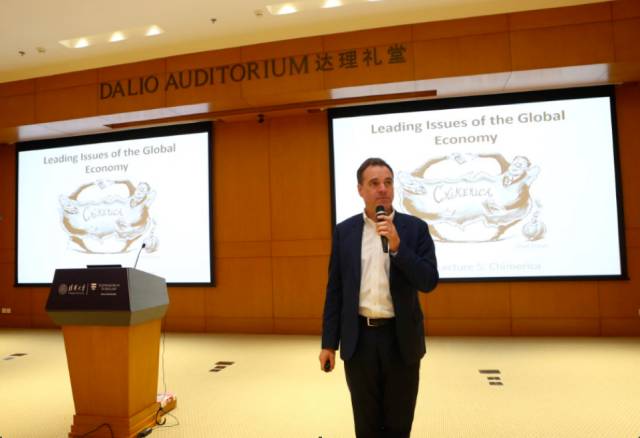
Ferguson teaches students at the college.
From October 21st to 28th, Professor Niall Ferguson arrived at Schwarzman College and together with Dean David Li presented two fantastic lectures in the “Leading Economic Issues in China and the World” course.
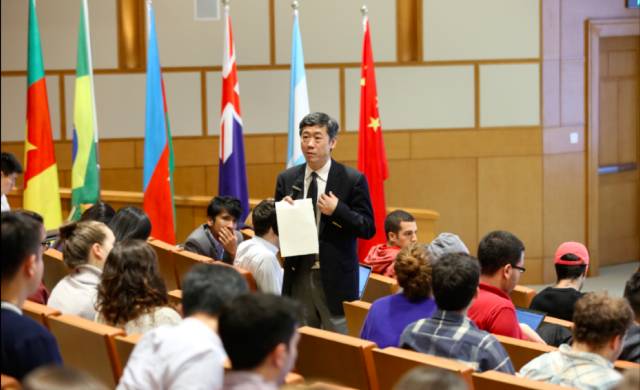
David Li interacts with students
Once a professor at Harvard University, Ferguson now serves as a senior research fellow at the Hoover Institution, Stanford University. He is a world renowned historian and one of few experts who excel in scholarship, finance and media. In 2004, he was on the TIME list of “100 most influential people in the world”.
During class, Professor Ferguson began his lecture with “the Great Divergence” and explained how the East-West dichotomy was widened. He emphasized the six elements of development: “competition”, “technology revolution”, “IPR protection”, “modern healthcare”, “consumer society” and “professional ethic”. In addition, Professor Ferguson introduced the concept of “Chimerica”. He pointed out the convergence trend of China and U.S. as well as potential conflicts. Stating precisely several problems faced by China such as: its current economic growth, the increase of leverage ratio, the Chinese real estate bubble and the aging population was also a highlight for his lecture.
On November 1st, Former vice president of IMF and deputy governor of PBOC came to Schwarzman College at invitation and gave a lecture on “A new world full of challenges”. The lecture was chaired by Xue Lan, Dean of School of Public Policy and Management, Tsinghua University and Professor of Schwarzman College.
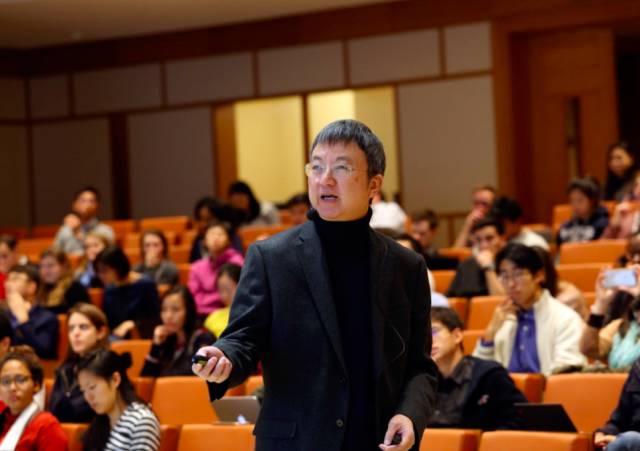
Zhu Min at the lecture
Beginning with some countries’ GDP changes in the last two decades, Zhu Min comprehensively analyzed the impact of globalization on different countries and regions from various aspects including: politics, economy, monetary policies among others as well as consequent geopolitical changes. Zhu Min also expressed his expectations toward Schwarzman scholars. He hoped that they can take on their responsibilities by guiding and making significant contributions to countries and people in need in this challenging new era, displaying true global youth leadership abilities.
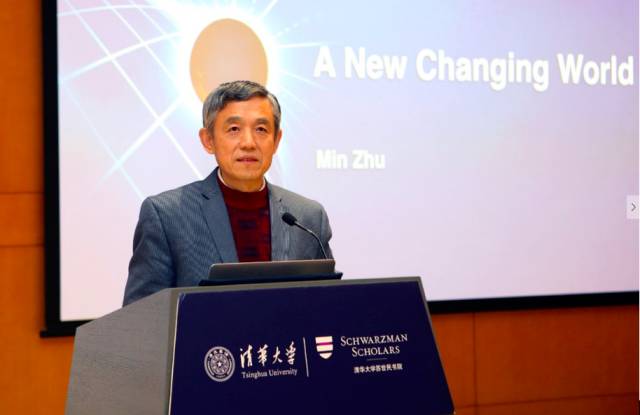
Xue Lan introduces the guests.
Following Zhu Min’s lecture, Professor Xue Lan questioned with a sense of humor, “Now that globalization has a huge bearing on international relations and the global economy, should we postpone the globalization process?” Mr. Zhu Min responded by noting how the widespread of Internet in the world, and worldwide distribution of “Made in China” products demonstrated immense opportunities in globalization and international cooperation. He expressed that we should examine globalization trends so as to capitalize on and appropriately facilitate the process.
On November 8th, Professor Qin Yaqing, President of China Foreign Affairs University (CFAU) and Executive Vice-president of China National Association for International Studies came to Schwarzman College at invitation and gave a lecture on “Chinese culture, international relations theory and foreign policy making”. Dean David Li attended and chaired the lecture. Everyone was in high-spirits and participants were very actively participating during the Q&A session.
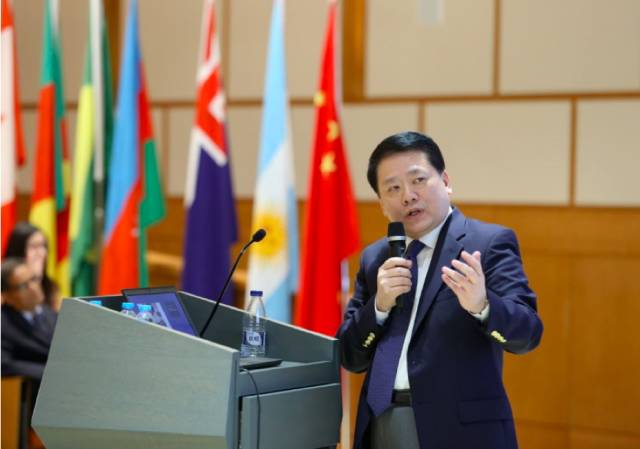
Qin Yaqing gave a fantastic lecture to faculty and students.
Professor Qin Yaqing started with an overview of Chinese culture, and further inducted culture’s multi-layer significance. He put forward culture’s “4c” features: contextuality, correlativity, complementarity and changeability. He provided an explanation of these four features with “peace-making”, “Ching”, and “the balance of moderation” and pointed out that China’s international relations were influenced by Chinese culture. Taking the example of “the balance of moderation”, Qin explained that the reason why China kept the balance of moderation in international relations was that China dedicated itself to maintaining the world balance of power. In conclusion, Professor Qin Yaqing explored what would change and what would remain constant in China’s international relations and foreign policy making with the example of Asia Infrastructure Investment bank (AIIB) and South China Sea issue, humorously coupling it with traditional Ching culture. He expressed that although China’s foreign policy may alter with the changing landscape of international relations, its basic principles and positions would remain unchanged.
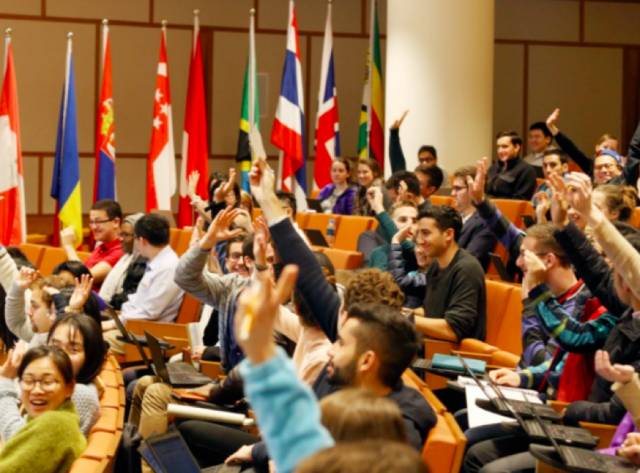
The lecture
During the lecture, Schwarzman scholars and Tsinghua University students from other schools and departments actively asked questions and expressed their opinions. They were grateful to sit in on lectures by experts and scholars from different fields, enabling them to further understand the meaning of leadership in a globalized context, which was precisely what the lecture courses in Schwarzman College’s interactive teaching system hoped to achieve. These open lectures enriched current teaching content from various areas including: politics, business, academics, technology, arts, etc. and they play an important role in providing a platform to all faculty and students at Tsinghua University to upgrade their skills and abilities.